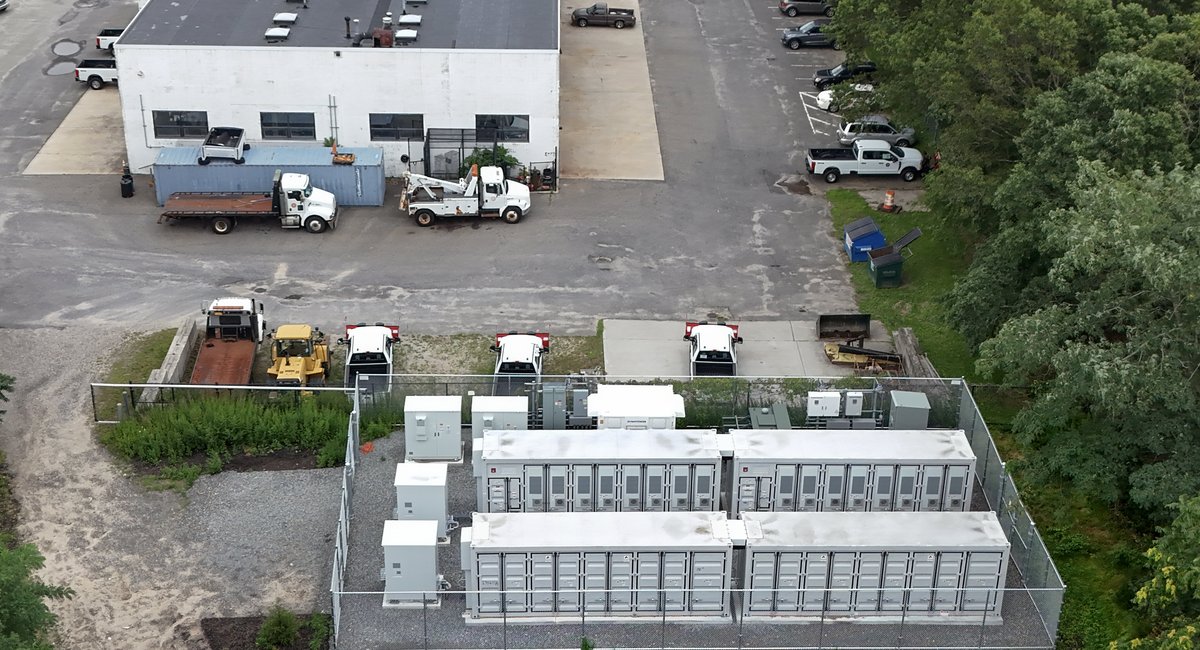The New York City Council is set to wade into the issue of “battery farms” and their proliferation across the five boroughs amid rising objections from prospective neighbors concerned that the energy-storage facilities pose a fire threat.
Local energy providers and city officials contend the sites are tightly regulated and a smart, green way to store electricity for use when the power grid is strained. But concern over battery energy storage systems — known as BESS sites — has peaked in the wake of a massive fire at a BESS site in northern California owned by Texas-based Vistra Corp.
That blaze, in January at what’s billed as the world’s largest BESS, forced the evacuation of more than 1,200 people in rural Monterey County. One energy provider, NineDot Energy, said it has more than 50 projects in the works locally, most of them in New York City, which has some communities pushing back.
“ Our main concern is the dangers of these lithium-ion battery sites,” said Claudia Greco, a resident of Marine Park, Brooklyn, who is fighting against a site set to be built 27 feet from the back of her house. “ These batteries do catch fire.”
The council’s committee on fire and emergency management is scheduled to hold a public hearing on the issue on Sept. 26 at City Hall.
In a statement, Councilmember Joann Ariola, who chairs the committee on fire and emergency management, said the hearing is an effort to “better understand the battery fire environment in New York City, assess how many there currently are and how many are planned in the near future, and address concerns about their placement.”
“Earlier this year, we saw a massive fire at a battery storage facility trigger the evacuation of some 1,200 people in California,” Ariola said. “We don’t want that kind of thing to happen here, and I look forward to hearing from both sides to come away with a more complete picture of the risks these sites pose.”
Karen Alter, a spokesperson for NineDot Energy, said the company adhered to rigorous safety standards and that the sites are critical to the local power grid.
“This summer alone, NineDot’s seven operating facilities in New York City have already strengthened the power grid during heat waves by providing additional, emissions-free energy when it was desperately needed — enough to power tens of thousands of NY households for four hours on each hot summer day they were called upon,” Alter said.
In response to the concerns raised by community residents, Amanda Farinacci, a spokesperson for the FDNY, said in a statement that the city’s “fire code for energy storage systems is widely regarded as one of the most robust and strongest in the country.”
“We test facilities, enforce standards, and prepare for any potential emergencies like no other city, making our regulations the best fire code for energy storage in the nation.”
Fires have occurred at BESS sites in Warwick County, Jefferson County and in East Hampton.
Aides to Mayor Eric Adams said there had been no fires related to BESS sites in New York City to date, and that the Department of Buildings and the Fire Department have extensive regulations related to such sites so that they meet strict safety standards.
Supporters pressing their case locally argue that BESS sites are preferable to the status quo.
“BESS systems have the potential to replace dirty ‘peaker’ plants that belch out toxic pollutants every time they are turned on,” former Councilmember Costa Constantinides and Queens Chamber of Commerce President and CEO Tom Grech wrote in a joint op-ed in A.M. New York in June.
“Despite being used only 15% of the time, these ‘peaker’ plants belch more asthma-causing toxins like the inhalable particulate matter PM 2.5, Nitrous Oxide and Sulfur Oxide, the stuff that gets into your lungs that cause asthma,” they wrote. “There is no way to make those plants clean or safe for our families to live nearby.”
Federal regulators, however, contend they are closely monitoring the issue nationwide as the Trump administration has signaled a pullback from renewable energy, while endorsing continued reliance on fossil fuels. In an Aug. 18 statement, the EPA noted that the state “has been working to expedite approvals of installations of these systems in densely populated areas, especially in New York City and its suburbs.”
“Many New Yorkers, especially in New York City and on Long Island, have made their voices clear – they do not want Battery Energy Storage Systems built in their neighborhoods,” EPA administrator Lee Zeldin said in a statement. “Residents are looking across the country where dangerous lithium battery fires at BESS facilities have caused widespread damage, and they are concerned with New York’s partisan push to fill yet another delusional ‘green’ goal, which the state itself admits it cannot meet.”
The EPA states on its website that since 2020, “BESS failure incidents have decreased, but some recent fires have gained attention in the media.” In addition to the highly publicized incident in Northern California, the agency noted another fire in San Diego in May, where flare-ups lasted for seven days.
Amit Shivprasad, a member of Community Board 12 in Queens who has been leading opposition to a BESS site in Hollis, said he was concerned about out-of-control fires, pointing to the one in Northern California.
“ It took five days before they brought it under control,” Shivprasad said.
Greco said the concerns extended beyond the threat of a fire. She also worried about “a situation where homeowner’s insurance is going to go up so high that most of us won’t be able to afford it or we won’t be able to sell our houses.”
“ So it is a real and present danger,” Greco said.
